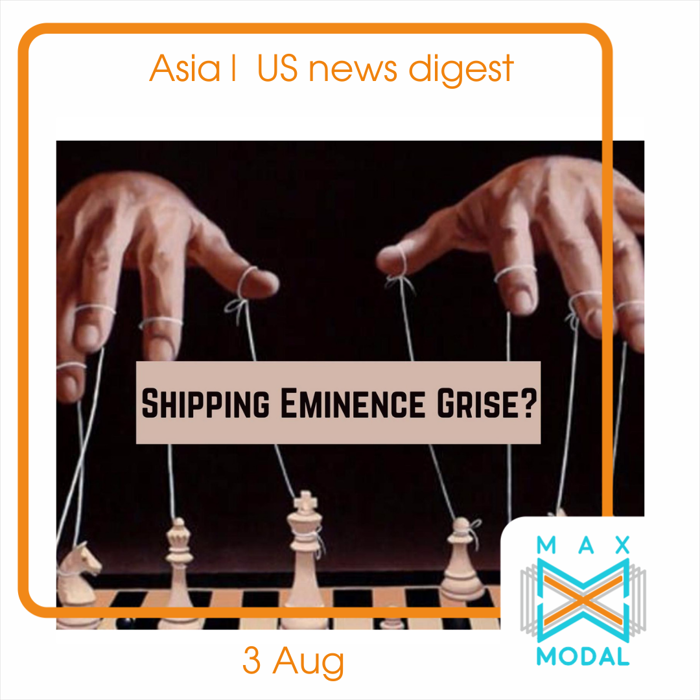Asia | US news digest. 3 Aug
Once again, big companies have been accused of manipulating the market. Is monopoly the actual backbone of the industry?
The US infrastructure, balancing on the verge of a crumbling state, has the potential of receiving additional investments for roads, bridges, etc. Senate is debating over the amount, but what is clear is that it is in favor of sanctioning $110bn for major projects deemed too large or complex for traditional funding programs. So far, there has not been any guidance on how the initiatives will be handled financially, perhaps, with more debt.
The saga about FMC bracing against shipping monopoly gets a spin-off with MSC and Cosco facing claims that they have failed to meet contractual obligations, in violation of the US Shipping Act. Pennsylvania-based MCS Industries has proclaimed that the two giants have been exploiting blanking sailings that let to reduced capacity by creating artificial scarcity and boosting prices on the spot market. Meanwhile, MCS states that it is the shipping lines that have obliterated the stable structure of the ocean freight transport industry. As a solution, MCS Industries expects FMC to put in place lawful and reasonable practices to preclude companies like Cosco and MSC from refusing to provide MCS with its allotted space at the prices agreed under their service contracts.
With no ease of travel restriction on Asian routes, local companies further tap into passenger-freighter flights to cope with peak season demand. Asian carriers are utilizing overhead bin space, using cargo seat bags for loading onto passenger seats, as well as on some aircraft, removing seats altogether. The approach has a big potential as experts expect cargo-only passenger flights to play a more vital role in the second half of the year.
Although the shipping industry has been welcoming new players in light of the growing rates, some went out of the race. One of them is PACC Container Line that has quit the liner trades after its parent, Malaysian conglomerate Kuok Group, underwent restructuring. The company motivates this decision by the necessity to focus on dry bulk, breakbulk, tanker, and gas business portfolio.
Clouds are thickening over Vietnam again as the troubled ports situation is spreading north. The recent data also indicates that many ports are now working with just 50% of their workforce. The heart of the country’s shipping industry Ho Chi Minh City’s Cat Lai Terminal has stopped accepting reefer cargoes a while ago and so far, it has no available space left in its facility.
An extremely important issue of air cargo security programs has been addressed by the US Congress’s investigative arm. Department of Homeland Security is expected to tighten up programs designed to protect against terrorists smuggling concealed explosives into the U.S. through air cargo. The compliance with the rules will be tested through undercover inspections – the initiative that is currently being discussed by the officials.
One of the companies that are vigorously adopting a successful policy that allow them to mitigate risk is Ford. It is now engaging directly with semiconductor fabricators and other key electronic-components makers in its supply chain and providing longer-term forecasts to its critical vendors. The chosen strategy helps to better align supply and demand. The efficiency keeps increasing and the company hints that it is just a part of a bigger development plan that is going to unfold.
Occasional obstacles do not prevent Coso from further expansion. Following the opening of the CSP Wuhan Terminal, the company has welcomed the first vessel. The terminal used its fleet of Driverless Container Vehicles for the first time to transport containers to the railway operation area. Cosco aims to accelerate the development of river-sea intermodal transport, water-rail intermodal transport, water-to-water direct transport and integrate port and city.

